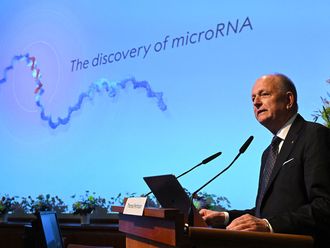Attention Deficit Hyperactivity Disorder (ADHD) is a group of behavioural symptoms that includes inattentiveness and hyperactivity. It is common in young children and can be distressing for both sufferer and parent. But there are ways to help lessen the impact it has on daily life.
Is ADHD just a label used to describe restless or naughty children?
It is very much a real condition. Many children are restless or inattentive at times, and this is normal. ADHD is when a child or an adult is persistently restless and can't concentrate in any situation, to the point where it has a detrimental effect on their intellectual and social development.
How is a diagnosis of ADHD made?
There is no test available to diagnose ADHD — it is made by assessment, but this is not a quick process. As there is a fine line between difficult behaviour and ADHD, the diagnosis has to be made to strict criteria. This involves gathering information from school and the GP, and observing the child in different settings performing different tasks. The features of ADHD have to be present for more than six months. It is also crucial to rule out other problems that may be mimicking the symptoms, such as epilepsy.
Is Ritalin the only answer?
No. Non-drug treatments are important, particularly behavioural work. Family therapy and classroom techniques are also important. But they are not a quick fix and there is often a long waiting list.
Can diet help children with ADHD?
Poor diet does not cause ADHD but it does seem to worsen it. Any parent whose child has ADHD should avoid additives and artificial colouring in food, and keep a food diary documenting daily food and behaviour. This can reveal hyperactivity in relation to certain foods. Omega 3 and omega 6 supplements have long been recommended for ADHD.
Why do some children get ADHD?
There are a lot of myths about the causes of ADHD. Bad parenting, watching TV and family turmoil are not causes of ADHD, although they can have an impact. Genetics has a role to play. Problems during pregnancy and around birth, such as having a very low birth weight, also make children more at risk.
Is ADHD a lifelong condition?
About half of children grow out of ADHD symptoms and carry on to do well socially and educationally. Some develop anxiety and depression, and drug treatment may continue into adulthood.










